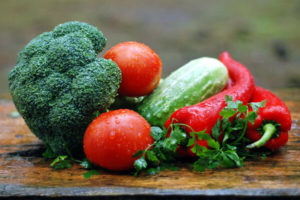Cancer treatment, such as surgery, chemotherapy, and radiation therapy, can weaken the body. Hence, people with cancer must follow a diet that can boost their immune system, give them energy, and be overall healthy.
To date, what constitutes a proper diet for cancer patients remains to be a topic that demands further research from medical experts. What is clear for now is that nutrition plays a significant role in fighting cancer. Therefore, it’s no surprise that many people diagnosed with cancer adopt a vegan diet. But is this chosen lifestyle beneficial to the body? Here’s what recent studies have told us so far.
What is Veganism?

Generally, veganism refers to the philosophy and practice of not eating and using anything from animal sources. These include meat, eggs, dairy products, and even seafood. Hence, people who follow a strict vegan diet limit their consumption to plant-based foods, such as fruits, vegetables, seeds, nuts, and whole grains.
Those who choose to become vegan do it either for ethical or health reasons. Overall, it is not just a diet plan—it is a lifestyle. Those who consider a switch to Veganism should understand that it is a complete change in their way of living. Being Vegan is not just about not eating meat but also about not using any animal product. If the soap and beauty products you use include animal products and cruelty, you should throw them out by now.
According to the Academy of Nutrition and Dietetics and the American Dietetic Association, a Vegan diet provides ample nutrition and has more health benefits. About 2% of Americans have a Vegan diet.
What are the benefits of following a Vegan diet for reducing cancer risk?
Some studies imply that Veganism lowers the risk of cancer, but studies have yet to improve its impact on specific types of cancer. Here are some of the claims about the benefits of following a Vegan diet:
Low risk for cancer
Veganism appears to be positively associated with lower cancer risk.
In a 2010 study, seventy thousand volunteers were asked about their diets. Over time, researchers found that those who did not eat meat had lower cancer rates than those who did. Vegans who do not eat dairy, eggs, or fish also scored the lowest cancer risks among all diets. The results seem to support the idea that such a lifestyle can serve as a potential strategy for cancer prevention.
However, while the concept is promising, the researchers pointed out that abstaining from meat is not the only factor between these respondents. Other factors include a high body mass index, sedentary living, and even smoking.
Plant-based nutrition
Plant-based foods, such as fruits, vegetables, and whole grains, are known to be rich in vitamins and minerals. These contribute to improving the body’s immune system, which shields us from viruses and other diseases.
Said foods are also packed with phytochemicals, the natural compounds produced by plants that fight off bacteria and fungi.
Many studies claim that these phytochemicals are good for cancer prevention and control, with plenty of anticancer drugs derived from them.
Flushes out toxins
A Vegan diet also boosts your fiber consumption, which helps flush out excess hormones. These hormones can make you susceptible to different kinds of cancer, such as prostate and breast cancer. Following a fiber-rich diet can also help you control your weight, one of the leading factors for developing cancer.
In a recent study, researchers provided 90,534 premenopausal women with a dietary questionnaire and evaluated their responses. The results indicate that consistent fiber intake showed a significantly lower breast cancer risk.
A better alternative to dairy
Vegans do not consume milk. They consume soy products instead. To date, various studies have been published exploring the potential of soy products in helping those with breast cancer.
In a 2009 research, scientists reviewed adolescent and adult soy food intake and its association with cancer. In the said study, 73,223 Chinese women were asked to answer a food-frequency questionnaire. The results show that those who consumed a high amount of soy foods regularly from adolescence and adulthood had a substantially reduced risk of breast cancer.
A healthier alternative to meat
A study conducted in 2011 suggests that daily intake of red and processed meat increases the risks of having colorectal polyps. These refer to a group of small excess tissues that grow on the inner lining of the colon.
While colorectal polyps are generally harmless, they may increase the risk of developing colon cancer.
Vegans have healthier options for meat such as tofu, flour, and such. You can also experiment with plant-based meat available in the market.
If ditching meat abruptly is difficult for you, you can also start by treating meat as a condiment. Add it to your meals just to add flavor, and do not use it as a main dish.
An organic alternative to treating cancer
When dealing with cancer, your nutrition should be your priority. That is why in treating cancer, holistic options that are non-invasive can help you become healthier to fight cancer. It also detoxifies your body to get rid of the cancer waste.
If you want to know more about alternative cancer treatments that can help you fight the disease, you can schedule a consultation with New Hope Unlimited. These treatments focus on boosting your immune system to fight cancer and implement anti-tumor protocols.


